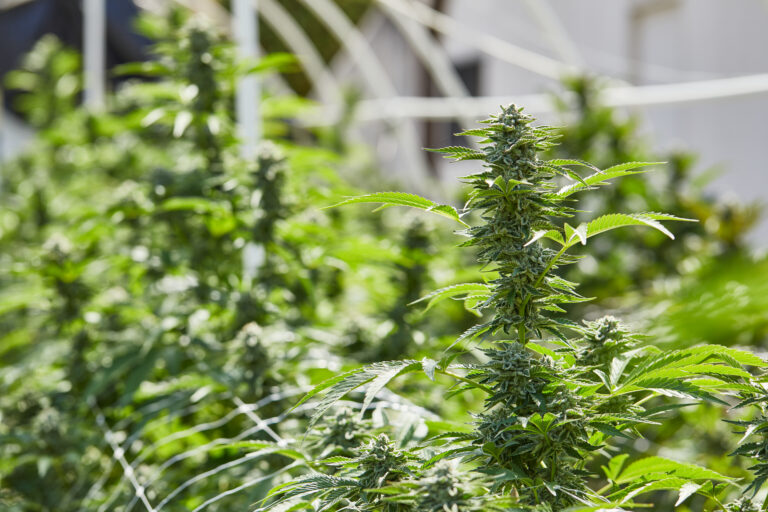Cannabis law can be complicated because what is legal at the state level is not necessarily legal at the federal level. This contention can represent a source of confusion for those who wish to participate in their state's legal cannabis industry but are concerned about federal consequences. The Cole Memorandum was the first critical step taken towards addressing this fundamental disconnect.
The memo offered guidance for federal prosecutors considering marijuana investigations or charges in states where cannabis had been legalized. Learn its history and why it was so important on the path to fully legalized cannabis.
A brief history of the Cole Memorandum
The Cole Memorandum, or Cole Memo as it's sometimes referred to, was authored by the Justice Department's Deputy Attorney General James Cole in 2013. Drafted under the Obama administration, the memo was issued as the US cannabis landscape began to change. At the time, Colorado and Washington had just legalized recreational weed and were developing new rules and regulations around it. It became clear that federal guidance was needed to address the conflict between these state and federal laws.
 Photo by: Gina Coleman/Weedmaps
Photo by: Gina Coleman/WeedmapsImage lightbox

Cole issued the memo for US district attorneys who were negotiating new state cannabis laws while upholding the national Controlled Substances Act. Fundamentally, the memo lays out expectations for federal prosecutors and law enforcement to follow along with a state's legal cannabis programs. It encouraged them to use federal government resources to address threats “in the most effective, consistent, and rational way.”
The Cole Memorandum specifically instructed federal representatives to focus on the following eight priorities to avoid interfering with state laws:
- Avoiding distribution of cannabis to minors
- Preventing criminals from profiting off cannabis
- Stopping cannabis from crossing state lines
- Eliminating illegal activity and drug sales under the cover of state-sanctioned marijuana sales
- Removing guns and violence from the system of cannabis cultivation and distribution
- Eliminating driving under the influence and other cannabis-related negative public health outcomes
- Keeping cannabis cultivation, possession, and use off public property
The memo, officially titled Guidance Regarding Marijuana Enforcement, was sent to all US attorneys. It wasn't the first document of its kind, as it had expanded on a 2009 memorandum issued by Deputy Attorney General David. W. Ogden. Ogden had urged department attorneys to avoid focusing federal resources on individuals who were acting in compliance with existing state laws that allowed for medical marijuana.
What did the Cole Memo accomplish?
The memorandum clarified how legal cannabis industries and federal enforcement agencies could peaceably co-exist. It also filled a critical legal void at a point in time when the nascent cannabis industry was blossoming in the face of unwavering government opposition.
 Photo by: Gina Coleman/Weedmaps
Photo by: Gina Coleman/WeedmapsImage lightbox

Cole's words offered clear directives on the aspects of cannabis policing that should be prioritized by federal representatives. Doing so gave individuals and businesses in legal states the peace of mind they needed to participate in the industry without the fear of risking prosecution.
Why did Jeff Sessions rescind it?
On January 4, 2018, Attorney General Jeff Sessions rescinded the Cole Memorandum, replacing it with his own memo addressed to all federal prosecutors. Sessions' memo immediately revoked the guidance issued by James Cole in 2013. For some commentators, Sessions' statement was viewed as a declaration of a new war on drugs.
Sessions' memo referenced the historical national stance towards prohibition and the severe penalties awarded for marijuana-related crimes. He also emphasized Congress's view that cannabis is a dangerous drug and that activity related to cannabis constitutes a serious crime. He recommended that prosecutors follow the established principles and protocol that govern all federal prosecutions.
Sessions commented, “Today's memo on federal marijuana enforcement simply directs all US Attorneys to use previously established prosecutorial principles that provide them all the necessary tools to disrupt criminal organizations, tackle the growing drug crisis, and thwart violent crime across our country." Interestingly, cannabis law expert David Feldman has noted that although the Sessions' Memo signaled a change in policy, there was very little change in practice, with very few federal prosecutions taking place.
What is the status of state and federal cannabis law today?
At the federal level, profound change is afoot. Politics are always shifting, and more states are coming online and in the cannabis space. Cannabis legalization is a popular issue among many voters in the US — anything can happen. Since the Cole Memorandum, the House of Representatives overwhelmingly voted in favor of the Marijuana Opportunity, Reinvestment, and Expungement (MORE) Act in 2020, and new proposals are constantly rolling through.
Written by Lesley Nickus | Featured image by Gina Coleman/Weedmaps




